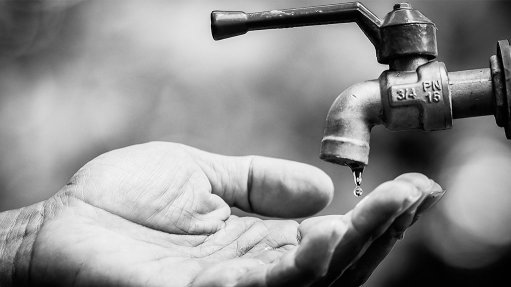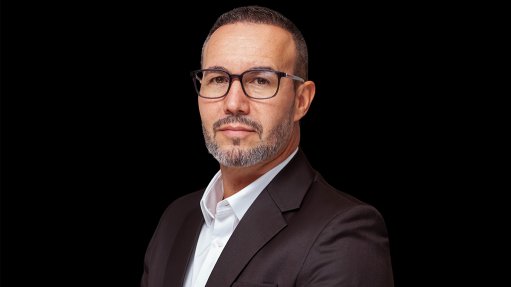2019: year of peaceful, patient popular power
As Southern African business closes off the year in a frenzy of foreshortened deadlines before racing to the door for the summer holiday, there is barely time to reflect on the year gone by. And what a political year it has been.
Who can forget May’s most powerful image of a young Sudanese woman standing on the roof of a car, singing and calling encouragement to the crowds of young protesters, whose protest action for weeks had brought the capital, Khartoum, to a standstill. And how effective this peaceful and patient popular power is: in Sudan’s case, the military intervened and did what sanctions didn’t do and what South Africa’s Foreign Ministry failed to do and arrested military dictator Omar Bashir, who had clung to power since taking it in 1989. If the military thought deposing Bashir was enough, they misjudged the determination of Sudan’s young protesters. Even unleashing the infamous brutal Janjaweed militia to do their worst failed. The military is now a very junior partner in a civilian-led transitional government that will lead the country back to representative civilian rule and back to the international stage.
Similarly, if Algeria’s de facto ruler, General Gaid Salah, thought it was enough to force former President Abdelaziz Bouteflika to resign, he too underestimated this patient popular power. The repeated arrests of protesters, manipulated news streams, and attempts to block websites and control social media have failed to stem weekly street demonstrations, which take place every Friday in the main cities of the oil-rich nation, keeping up hope that representative civilian rule will eventually come to Algeria, whether or not through military-run elections that were expected to be held on December 12.
Egypt witnessed an unprecedented outbreak of public protests on September 20, with spontaneous demonstrations in cities including Cairo, Alexandria, Mansoura, Damietta and Suez calling for President Abdel Fattah El Sisi to leave office. While small and scattered, the eruption of public anger is unprecedented, since Sisi banned all forms of public assembly in 2013. Those who attempted to protest in the past faced long prison sentences and at times the death penalty. In the face of extreme danger from military-backed governments, this patient power has had success, inspiring a resurgence in Egypt and even in Morocco. The Arab Spring is on its way to summer.
Elsewhere on the continent, and notably where the prodemocracy movement of the 1990s is now maturing, the movement is hitting headwinds – largely because members of the political elite seek to cling on by any means. Most notable examples of this are Cotê d’Ivoire, Guinea and the Democratic Republic of Congo (DRC). While Cotê d’Ivoire President Alassane Ouattara’s mandate is set to end in 2020 and he has stated that he wants to pass the leadership mantle to a new generation of leaders, he has not ruled out the possibility of running for another term, claiming that the 2016 Constitution allows him to do so. All three key political players – Ouattara, ex-President Konan Bedie and the spoiler ex-President, Laurent Gbagbo – are the same three belligerents whose inability to compromise politically brought the country to collapse and a ten-year civil war. In neighbouring Guinea, a proposed constitutional amendment that would enable President Alpha Condé to run for a third term sparked an Arab Spring-like month of continuous protests, which culminated in several deaths in November and has increased sociopolitical uncertainty. With protesters and Presidential supporters both maintaining a hard-line stance, this scenario is likely to persist in the short run and lead to further violence and casualties.
But it is in the DRC that we start to see political manipulation in full force where President Felix Tshisekedi was sworn into office on January 24. The DRC’s first transfer of power by election in 59 years of independence was marred by allegations of fraud and vote rigging and speculation that Tshisekedi had come to an arrangement with the outgoing President, Joseph Kabila. Despite Kabila’s political faction’s poor showing in the Presidential elections, he somewhat incredibly won a majority of seats in the National Assembly. Opposition commentators cried foul and pointed to the composition of a new Cabinet, in August, eight months after Tshisekedi was sworn in. Most of the new Ministers are aligned with Kabila’s political coalition. Kabila’s allies now dominate the legislature and Ministries, and critically, mining-related Ministries. However, it is an unhappy coalition, which is fractured, as both sides look to dominate the political environment.
This coalition of the old ruler and the new one, the so-called Russia option, as it has come to be known, has now infected the thinking of Kenya’s political elite. Supporters of Deputy President William Ruto accuse the current President, Uhuru Kenyatta, and perennial would-be President Raila Odinga of conspiring to keep Ruto out of power in the next elections by following the Russia option – recreating an executive Prime Minster’s post and downgrading the power of the Presidency.
No review of the year is complete without touching on the lack of political progress in Zimbabwe. All the hope that accompanied President Emmerson Mnangagwa into office is now largely lost, both at home and abroad. A November Cabinet reshuffle, aimed at addressing the ineptitude that plagued his first Cabinet, seemed to be little more than an exercise in stacking the Cabinet with loyalist – which has had the singular effect of unleashing internal opposition from the ruling Zanu-PF party and the Zimbabwe Defence Forces.
But it takes South Africa to remind us all of the clout of a powerful Constitution to rightsize a country that the political elite had moved in a wayward direction. Although it is widely agreed that President Cyril Ramaphosa – who won the popular poll in the May election – is moving too slowly for the needs of the population, the economy and for the international business community, the task of rebuilding the institutions of State that had come under sustained and determined battering is a slow and painstaking one. If South Africa draws on the strength of its own patient and peaceful popular power – it will allow Ramaphosa to get the job done.
Article Enquiry
Email Article
Save Article
Feedback
To advertise email advertising@creamermedia.co.za or click here
Announcements
What's On
Subscribe to improve your user experience...
Option 1 (equivalent of R125 a month):
Receive a weekly copy of Creamer Media's Engineering News & Mining Weekly magazine
(print copy for those in South Africa and e-magazine for those outside of South Africa)
Receive daily email newsletters
Access to full search results
Access archive of magazine back copies
Access to Projects in Progress
Access to ONE Research Report of your choice in PDF format
Option 2 (equivalent of R375 a month):
All benefits from Option 1
PLUS
Access to Creamer Media's Research Channel Africa for ALL Research Reports, in PDF format, on various industrial and mining sectors
including Electricity; Water; Energy Transition; Hydrogen; Roads, Rail and Ports; Coal; Gold; Platinum; Battery Metals; etc.
Already a subscriber?
Forgotten your password?
Receive weekly copy of Creamer Media's Engineering News & Mining Weekly magazine (print copy for those in South Africa and e-magazine for those outside of South Africa)
➕
Recieve daily email newsletters
➕
Access to full search results
➕
Access archive of magazine back copies
➕
Access to Projects in Progress
➕
Access to ONE Research Report of your choice in PDF format
RESEARCH CHANNEL AFRICA
R4500 (equivalent of R375 a month)
SUBSCRIBEAll benefits from Option 1
➕
Access to Creamer Media's Research Channel Africa for ALL Research Reports on various industrial and mining sectors, in PDF format, including on:
Electricity
➕
Water
➕
Energy Transition
➕
Hydrogen
➕
Roads, Rail and Ports
➕
Coal
➕
Gold
➕
Platinum
➕
Battery Metals
➕
etc.
Receive all benefits from Option 1 or Option 2 delivered to numerous people at your company
➕
Multiple User names and Passwords for simultaneous log-ins
➕
Intranet integration access to all in your organisation


















